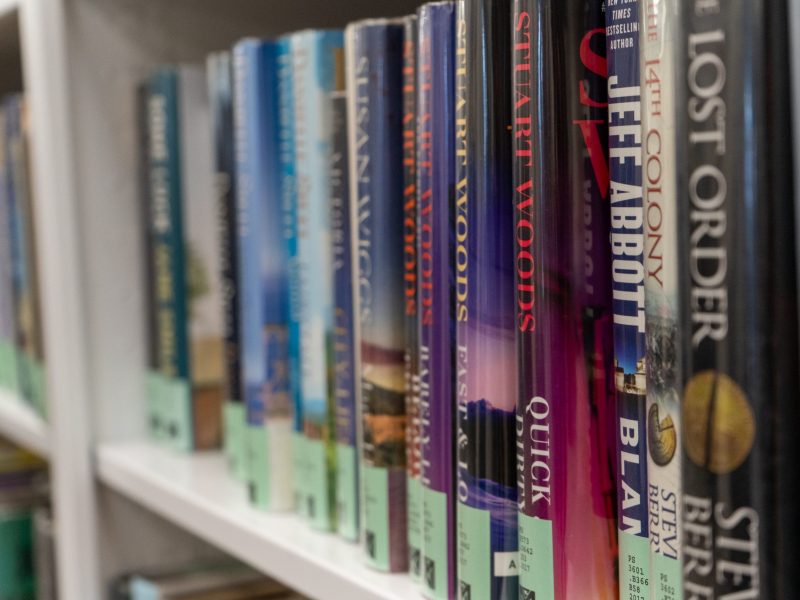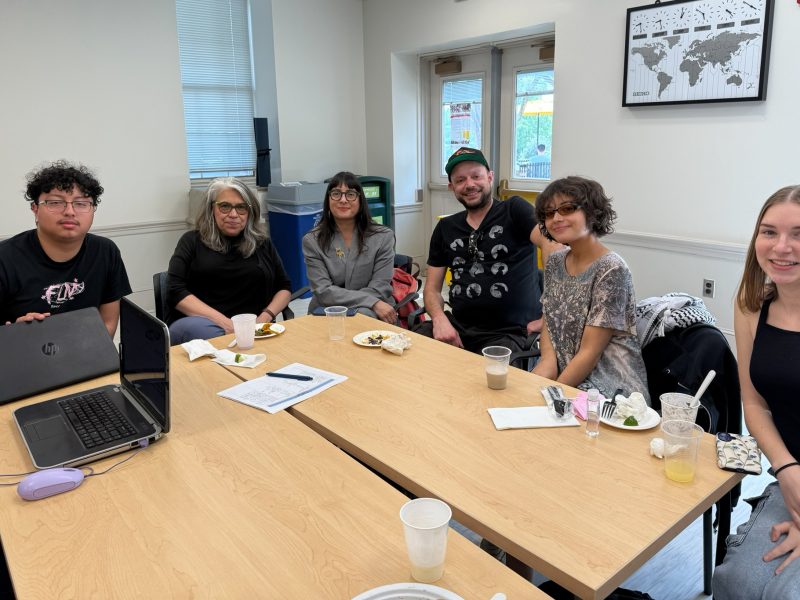Two years ago, the University of Maryland’s poetry community was on its last legs.
Virtual classes during the pandemic wiped out the membership of Terpoets, this university’s poetry club, diminishing their numbers to two. By 2021, the number of English majors had nationally reduced by a third compared to 10 years prior.
Poetry’s popularity at this university seemed to be waning. Time would prove that wrong.
“Interest in poetry, once we came back in person, has steadily increased in a way that I hadn’t seen before COVID,” Lindsay Bernal, this university’s graduate creative writing program’s academic coordinator, said.
Rue Campion, one of Terpoets’ vice presidents, was a part of that new wave of interest. The senior English major joined the club in her first semester during fall 2022, when membership sat at about eight students. Today, the club boasts 40, according to club president Caleigh Larkin.
“It was a very unexpected increase, but not unwelcome,” the senior criminology and criminal justice major said. “COVID inspired a lot of people to try to process their feelings in new and different ways, especially in terms of the solo processing that poetry does.”
[How distractions impact Gen Z’s ability to sit through movies]
April marks National Poetry Month, and the impact of this university’s post-pandemic poetry boom can be seen in both academia and extracurriculars.
Campion, who is also Terpoets’ outreach chair, said an open mic event with the English Undergraduate Association is being planned for the month, which may feature guest speakers.
Nikki Giovanni, a renowned poet and civil rights activist, will visit this university on April 24. Giovanni will join the university’s new Frederick Douglass Center for Leadership Through the Humanities’ inauguration ceremony. The center aims to make leaders who embody values in the humanities.
This university also has consistent poetry programming from both Terpoets and the English department. Terpoets meets every Tuesday evening and hosts monthly open mics as well as free writing sessions. Meeting topics range from discussions on poetry form to deep dives exploring the life and work of legendary writers such as Mary Oliver.
For students looking to work poetry into their academic coursework, the English department offers a variety of courses on the subject — some taught by Bernal. But her work primarily focuses on graduate students in the creative writing program who are working toward finishing their first collection of work, a process that can take two to three years.
Some of that work has been highlighted by the department in celebration of National Poetry Month, Bernal said. The English department’s social media channels have spent April celebrating and promoting alumni, faculty and current students’s work.
[UMD student’s digital art celebrates icons, animated characters]
As Terpoets continues to draw new members, Campion and Larkin credit pandemic-era lockdowns for driving student interest in the medium. Larkin found poetry while battling depression their freshman year of high school.
“Poetry has grown with me,” Larkin said. “It’s just been such a present force in my life because it is the tool I use best to describe myself and emote myself and connect with people.”
Campion’s pandemic-era entry into poetry was an escape from the isolation that came with lockdown, among other hobbies such as online role-playing games and chess.
“When we get into this place of loneliness, you find yourself wanting to learn and to create in ways that maybe a lot of us didn’t have time or the mental and physical energy to do before,” Campion said.
Some people turned to poets for comfort, a move born out of the innate desire to be seen and understood in an era of uncertainty, Campion said. Now, that desire has blossomed into a space for shared passion and renewed community.
Although Larkin and Campion’s time in Terpoets is coming to an end, the club’s future is promising. New events, such as open mics in Washington, D.C., and a slam poetry team’s establishment are on the horizon. As National Poetry Month highlights the work of Terpoets on campus, Larkin can spend their final months at the university enjoying the club they rebuilt.



